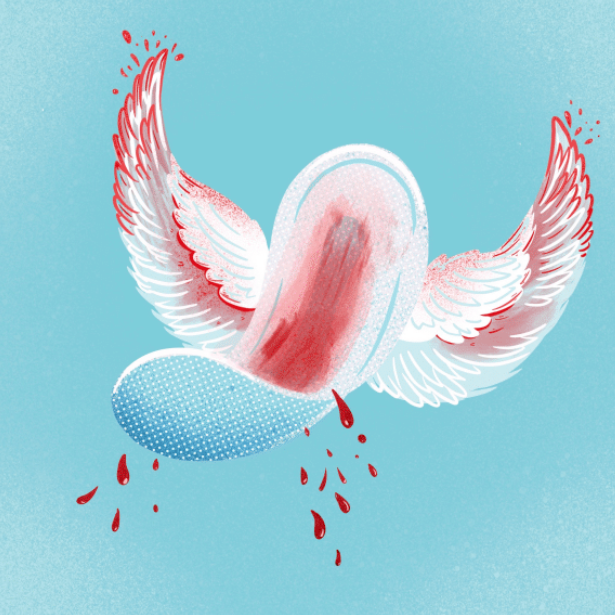This week, Germany has made headline news for cutting back its 19 per cent VAT on tampons, pads and menstrual cups. Although discussions are still being held on how much the reduction will be, the decision has none- the-less brought the tampon tax debate back into the spotlight and the question of whether or not these products are ‘luxurious’, remains a controversial one.
As much as it is claimed that UK taxation classes sanitary products as ‘luxury’ items, their VAT was decreased from the standard 20 per cent to 5 per cent by the Labour government in 2001, who stated: “This is not a luxury consumer product. This is about fairness and doing what we can to lower the cost of a necessity”. Fake news, as is the case with most current affairs, proliferates the discourse on tampon tax. While some claim that non-essentials like razors are taxed as much as sanitary products, this is simply not true. However, arguably unnecessary products like books, Jaffa cakes and, bizarrely, motorcycle helmets are VAT zero-rated, while menstrual products are still subject to a 5 per cent rate.
At Edinburgh University, we fortunately have access to free sanitary products, meaning tampon tax need no longer effect students. However, this is far from the experience of many young women living in period poverty across the UK. Plan International UK highlight that 1 in 10 girls have been unable to afford sanitary wear. This leads to isolation and shame, as well as regular school absences, undeniably impacting educational performance.
So why hasn’t tampon tax been scrapped in the UK?
The coalition government responded to this question: “The Government cannot introduce a new zero rate as this would require a change to EU VAT legislation”. Instead, VAT on sanitary products is directed towards charitable efforts. Since 2015, an iniative allocating grants from the ‘tampon tax fund’ has handed out £47 million to eighty projects, intending to help vulnerable women.
One beneficiary of the fund is Leeds-based ‘Simon on the Streets’, who work to alleviate homelessness. This year they received £30,000, which they plan to use to recruit two new women’s outreach workers to help reduce female homelessness, as well as support vulnerable ‘hidden homeless’ women, highlighting the tampon tax’s potential to be a positive social force for more fortunate women to aid those in need.
However, the fund has been far from a complete success. This year only one of the recipients was a speciality women’s charity. This has led the women’s charity sector to call for ring-fencing of funds to ensure they actually reach women.
According to Vivienne Hayes, chief executive of Women’s Resource Centre, “It seems that the government thinks that large charities are the best option which is actually completely incorrect”.
Despite smaller, grassroots charities being more embedded in the community, more accessible to vulnerable women and in touch with their needs, they are crippled by the current system of allocation. women and in touch with their needs, they are crippled by the current system of allocation. Perhaps the most shocking failure of the scheme to date is the awarding of £250,000 to ‘Life’, an organisation that actively campaigns against abortion. On top of these failures, the House of Commons library have projected that by 2020, women will have borne 86 per cent of the total burden of austerity, deepening the rut of period poverty.
Despite the good intentions of the fund, its failures beg the question: wouldn’t scrapping tampon tax completely do more to reduce the burden? While proposals to scrap VAT on period products were published to the EU Commission in January 2018, little progress has been made since. Although the prospect of Brexit generates anxiety and uncertainty for a multitude of reasons, perhaps it could speed up the scrapping of UK tampon tax by freeing up the government from the limitations of EU VAT law?
What do you think – should tampon tax be scrapped altogether? Or should we instead be looking at reforming the system by which its funds aim to benefit those living in period poverty?
Illustration Credit: Kat Cassidy

